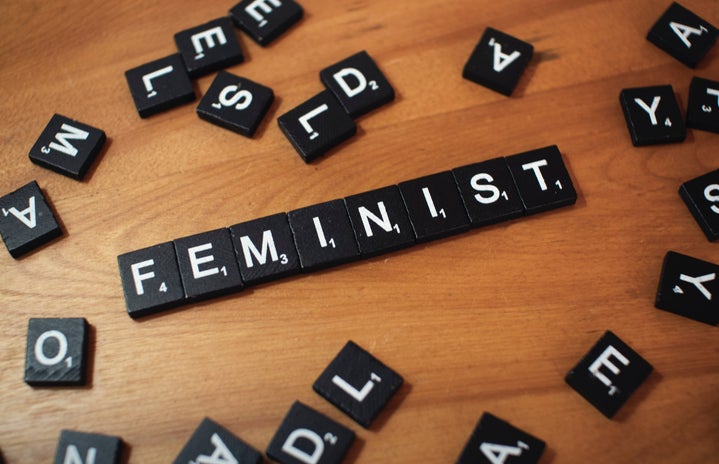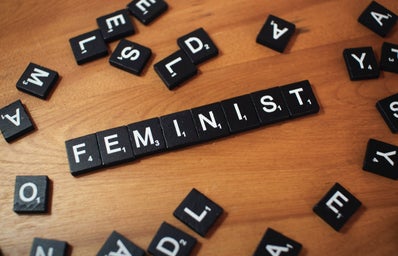He shoots, he scores!
That’s what I’ve always heard announcers exclaim after a hockey player scores a goal. I always think about this saying, even though I can’t relate.
I’ve been a hockey fan for as long as I can remember. I never actually played, though; I’m too much of a klutz. I declared my fandom to the National Hockey League (NHL) and Toronto Maple Leafs from an early age, and that dedication has never wavered to this day.
I attended my first NHL game in 2013, a game between the Toronto Maple Leafs and the Ottawa Senators. The eccentric lights, the roaring crowd, the ebbs and flows the game brought — I would argue that this was the moment that sparked my interest in the sport. But I didn’t know that at the time. For the longest time, I thought this game ignited my love for the NHL, not hockey itself.
Growing up, the NHL always took centre stage. How could it not? Games were on every night, players only grew better, and the games became more competitive as time passed. You never had to twist my arm to get me to watch a Leafs game, no matter the time or opponent.
I remember scrolling through Google early in the morning before school to see the scores and headlines from each NHL game, eager to soak up all the information from the night before.
Not to mention the off-ice events that promoted the NHL — free agency, the All-Star game, the draft, and the trade deadline, my interest in the NHL eventually grew beyond the rink. Seeing what was happening both on and off the ice was intriguing.
Despite this, I felt a disconnect between myself, the league, and the sport itself. While, yes, I would religiously watch the players on the ice, I could not relate to them. Partly because they were millionaires but also because I was watching men play. I never found myself relating to the experiences of NHL players. They have just always been there. The same players laced up their skates every night and played the same game, but I could never truly connect with NHL players.
For a while, I was losing interest in the NHL. It wasn’t necessarily the performance on the ice. It was everything that came with the league. As I grew up, I began to realize the NHL’s flaws, including a lack of gender diversity and the recycling of the same staff and players between teams.
And then the Hockey Canada sexual assault scandal broke the news.
On Jan. 24, 2024, five former Hockey Canada players were ordered to surrender to London police to face sexual assault charges in connection to an alleged group sexual assault from June 2018.
When this scandal broke publicly, there was a massive outcry. Hockey Canada was also exposed for allegedly covering up decades of scandals, paying out nearly $9 million to 21 different people since 1989 to settle alleged sexual misconduct claims.
When I learnt of this for the first time, I was shocked, yet not surprised. The toxic culture surrounding hockey has always been present. It’s always been a cloud hanging over the sport, but to see the culmination of that was disheartening, to say the least.
From that point on, my dedication to the sport withered. I still tuned in for games and followed along with hockey news, but there was an asterisk. It was like the sport as a whole was tainted for me. What I once was enamoured with was actually the worst version of itself.
Although this news was like a sucker punch to my fandom, I dove into learning more about this side of the sport and what else has been alleged by victims. I wish I could say I didn’t find more, but that didn’t happen.
I found too many examples of what is plaguing hockey: the Pittsburgh Penguins sexual assault case, the Logan Mallioux controversy, and the Noah Corson case.
After this, my motivation to watch hockey went away. Watching the NHL when these incidents were going under the radar felt wrong.
Then, the Professional Women’s Hockey League (PWHL) was born.
When the PWHL was announced this past summer, I remember being overcome with excitement. The new league was advertised as an inclusive, women-driven space where women hockey players would finally get to play on the big stage they deserved to play on.
I remember watching the last few Olympics and being mesmerized by the Canadian national women’s hockey team, but the tournament was always a flash in the pan. I would grow attached to the female athletes, but the tournament would always end in a few weeks, and I would be left waiting for the next four years to pass to watch these players thrive.
The PWHL created an opportunity for more than just hockey players. Female management, equipment staff, media and many more had a fresh slate: a chance to start something new.
The message the PWHL sent to fans was that the league’s goal was greater than just championships and goals. It was to become a safe space for women in sports who struggled to find their place in a male-dominated industry. It was a place to be welcomed, not criticized and torn down.
From there, I began following along with all the news from the league. From the announcement of the six inaugural teams to the PWHL Draft and free agency, the league quickly became more to me than just hockey.
I became attached to the PWHL, looking for any way to get as close to the league as possible. From attending PWHL Toronto home games, I could see that the dedication from fans was unwavering. The atmosphere was always electric, and the players always fought well.
It didn’t feel like there was a “boys club” culture amongst anyone, which was something I always struggled with when watching NHL hockey. I felt welcomed and embraced by the PWHL community, something that I didn’t always feel.
While I always loved the sport of hockey, I hated the people who were delivering the sport. Now, I have found my real love for the game.
For the first time ever, I finally believe that the game loves me back.
If you or someone you know has been sexually assaulted, you can call the National Sexual Assault Telephone Hotline at 800-656-HOPE (4673) or visit hotline.rainn.org.


